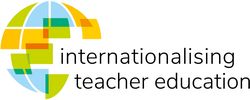Current educational issues

Every year we focus on a different topic that is closely linked to issues that students will encounter in school:
2025: Inclusive language teaching and multilingualism
Language is key. It is the central medium of communication, also in school. In a migration society learners from diverse backgrounds also have diverse language backgrounds. All are exposed to the same official language of instruction, however, which is the mother tongue for some but not for others. We focus on the pedagogical challenges this sometimes entails and learn about adequate language didactics. How can teaching be language sensitive in order to be inclusive? We will try to equip the students with methods and tools for a reflective approach to linguistic diversity.
2026: Racism and racism-critical education
In 2026 we focus on the topic of “racism” both with regards to life and practices in schools but also with regards to the institutionalised structures of lessons in the various national educational contexts. How can teachers tackle issues of discrimination related to the categories of “race” or “ethnicity”? Which tools and interventions help to translate a racism-critical perspective into a sound methodology and adequate pedagogical interventions? The postcolonial constellation of the project partners (Netherlands, Germany, South Africa) will be the starting point and also the subject for exploring and developing models and methods further.
2027: Inclusion and well-being
Inclusive education means that children and young adults with and without disabilities attend the same school and learn together. However, this ideal does not prevail in all education systems; learners with disabilities often encounter exclusive structures where inclusive education should be taking place. We need a sustainable transformation process in which settings are conducive to learning and development for pupils from all learning backgrounds and independent of their (dis)abilities. It will also be key to have adequate care policies in order to maintain the emotional, mental and social health of the students (concept of well-being). Both areas will be the focus in 2027.
2028: Gender and sexual diversity
Future teachers are faced with the challenge to address the diversity of sexual orientations and gender as well as the diversity of the many different concepts of family and role models. This also means to practically deal with issues of anti-discrimination and equal opportunities and the prevention of sexual violence. In a protected environment students will get the opportunity to discuss their ideas with international experts (faculty from the project partners) and to develop methods in preparation for implementation in their future life in school.
2029: Intersectionality of the themes
Over the past few years our aim was to strengthen the students’ ability to deal productively with diversity in an international context. We looked at the many dimensions of diversity and the resulting inequalities. As the dimensions are often entangled it is almost impossible to look at them individually. We use the term “intersectionality” to describe this overlap of the various categories of diversity. This again is closely linked to the production, the processing and the hierarchisation of differences. In the final project year we will re-view our findings and best practices from 2025–2028 and on that background concentrate on the intersectionality of the topics and make them useful for the school background.

